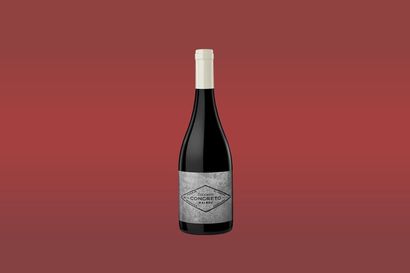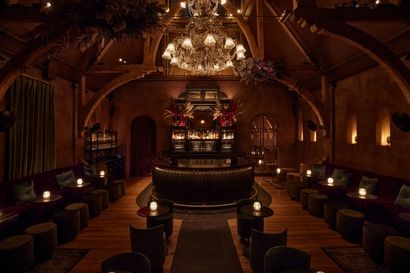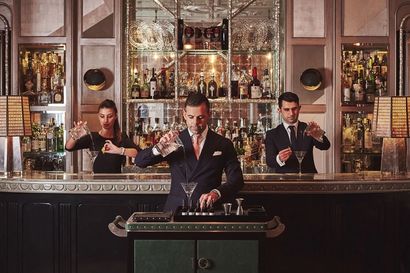Inside the meteoric rise of experiential socialising
As pubs and restaurants close their doors, our appetite for mini golf bars and high-concept eateries is booming. So why can’t we just go for a drink anymore?
Perhaps it started with the Hard Rock Cafe. Or maybe it was the Rainforest Cafe. Situated at either end of London’s main shopping thoroughfare, these early adopters of experiential eating acted as beacons of light for the parents of weary tourist families who, having dragged themselves the length of Oxford Street, wanted nothing more than a restaurant that would occupy their children with Jimi Hendrix’s guitar or an animatronic gorilla long enough for them to down a large glass of wine. And, more importantly, were happy to shell out for overpriced, subpar burgers for the privilege.
Decades later and both are still going strong. In fact, there are now 24 Rainforest Cafes around the world and the Hard Rock empire now includes hotels, casinos, theme parks and sports stadiums. But both are facing increasingly stiff competition. While traditional British pubs continue to close at a rate of 18 per week and high street chains, such a Jamie’s Italian and Pizza Express, are falling foul of consumers’ increasing reluctance to part with cash for a mediocre meal, the experiential socialising industry is booming.
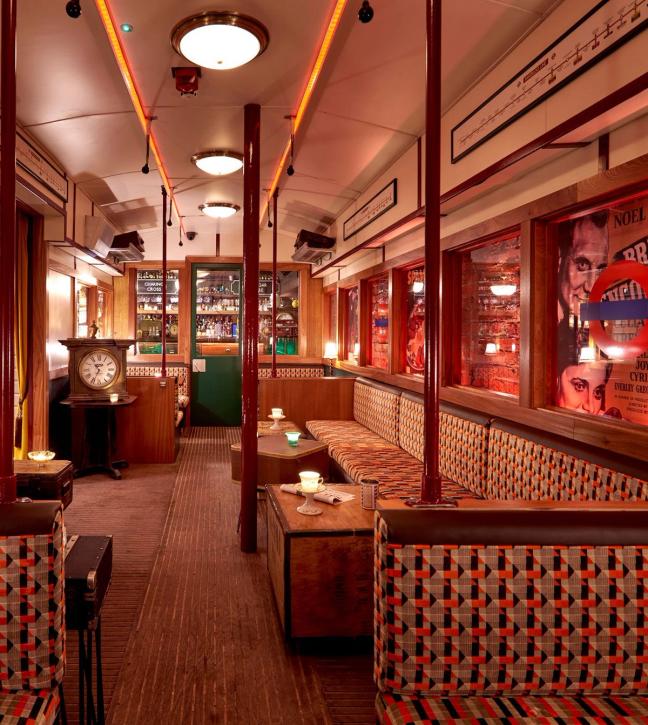
Cahoots
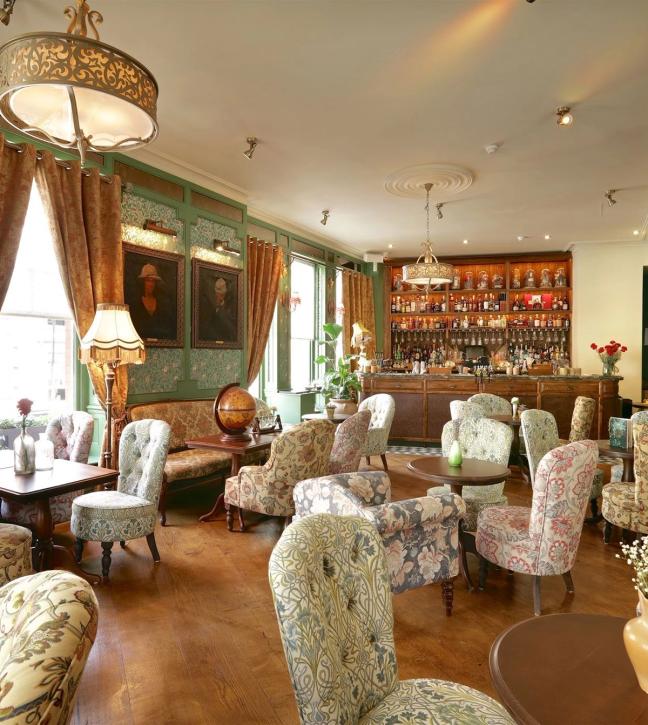
Mr Fogg’s House of Botanicals
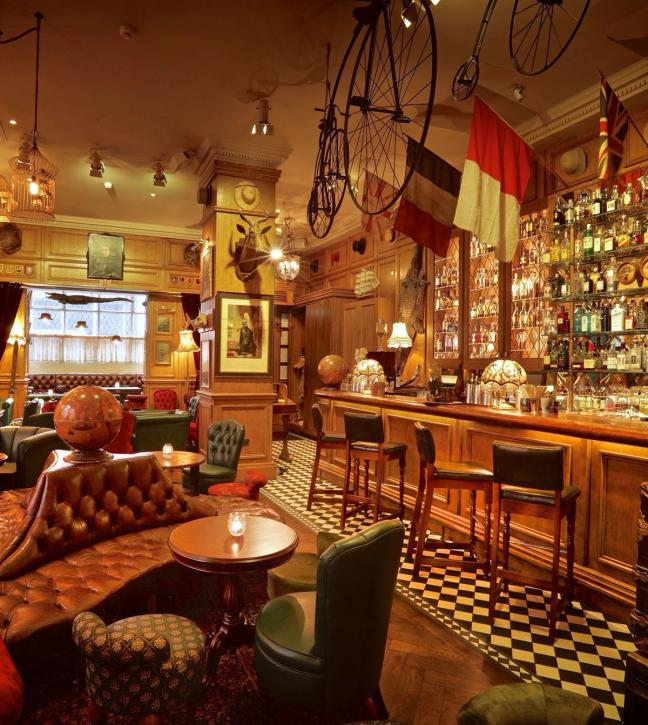
Mr Fogg’s of Mayfair
“Five years ago no-one was using the phrases ‘experiential socialising’, ‘competitive socialising’ or ‘performative dining’,” says Charlie Gilkes, co-founder of Inception Group. “Now we’re competing on a much broader scale against all manner of activity-based hospitality products, from popular escape rooms and indoor mini golf, to more niche shuttle board and axe-throwing bars.”
An early player, Inception Group opened the doors to its first venue, Barts, in 2009. The 1920s speakeasy-themed bar was an instant hit and the group now operates eight venues across London, including the popular Victorian-themed Mr Fogg’s cocktail bars and its most recent opening, a post-war overground station-style venue called Cahoots Ticket Booth & Control Room in Soho.
So why does Gilkes think experiential venues are bucking the trend? “Consumers want to go home interested, with a story to tell, and social media content to prove it,” he explains. “Dinner and drinks is no longer interesting enough – experiential socialising is great fun and creates unique moments of escapism that are increasingly welcome and necessary in our relentlessly fast-paced lives.”
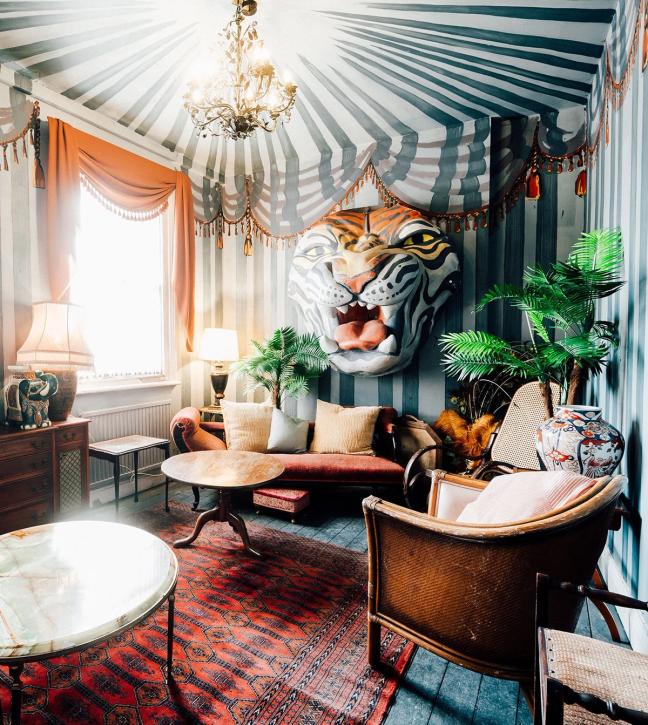
Darling House
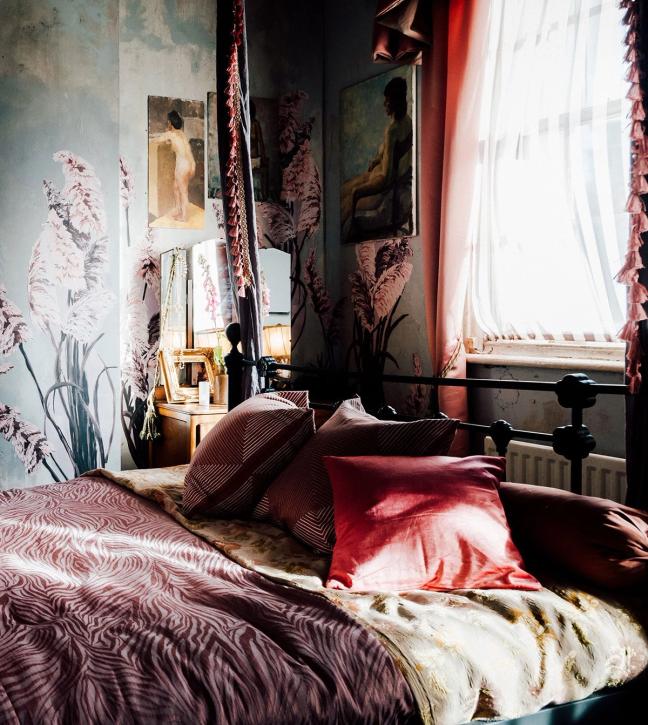
Instagram, of course lies at the heart of this. After all, why go to the same old local time and time again when you could be showing the whole (online) world how you’re living your best life at an experimental underground circus-themed cocktail bar complete with the kind of peacock-printed Millennial pink toilet decor selfies were made for?
Harriet Darling and Elise Edge, whose eponymous design firm has been working in immersive socialising for over a decade, argue there is a little more to it than that however. “People’s imaginations and sense of play have been ignited by the stories, spaces, costumes and food that the city has to offer. They’ve become part of the space,” they explain.
Darling & Edge started out working on various pop-up events, including the Gingerline experiential supper clubs, and have recently branched out to a permanent space. Darling House, tucked behind the Old Vic theatre in Waterloo, is a riotous high-camp space comprising a restaurant, basement cocktail bar and two-storey ‘house’ in which guests are encouraged to sip champagne from a bath filled with pillows or lounge on a four poster bed with Old Fashioneds. Drinks are served from an airing cupboard.
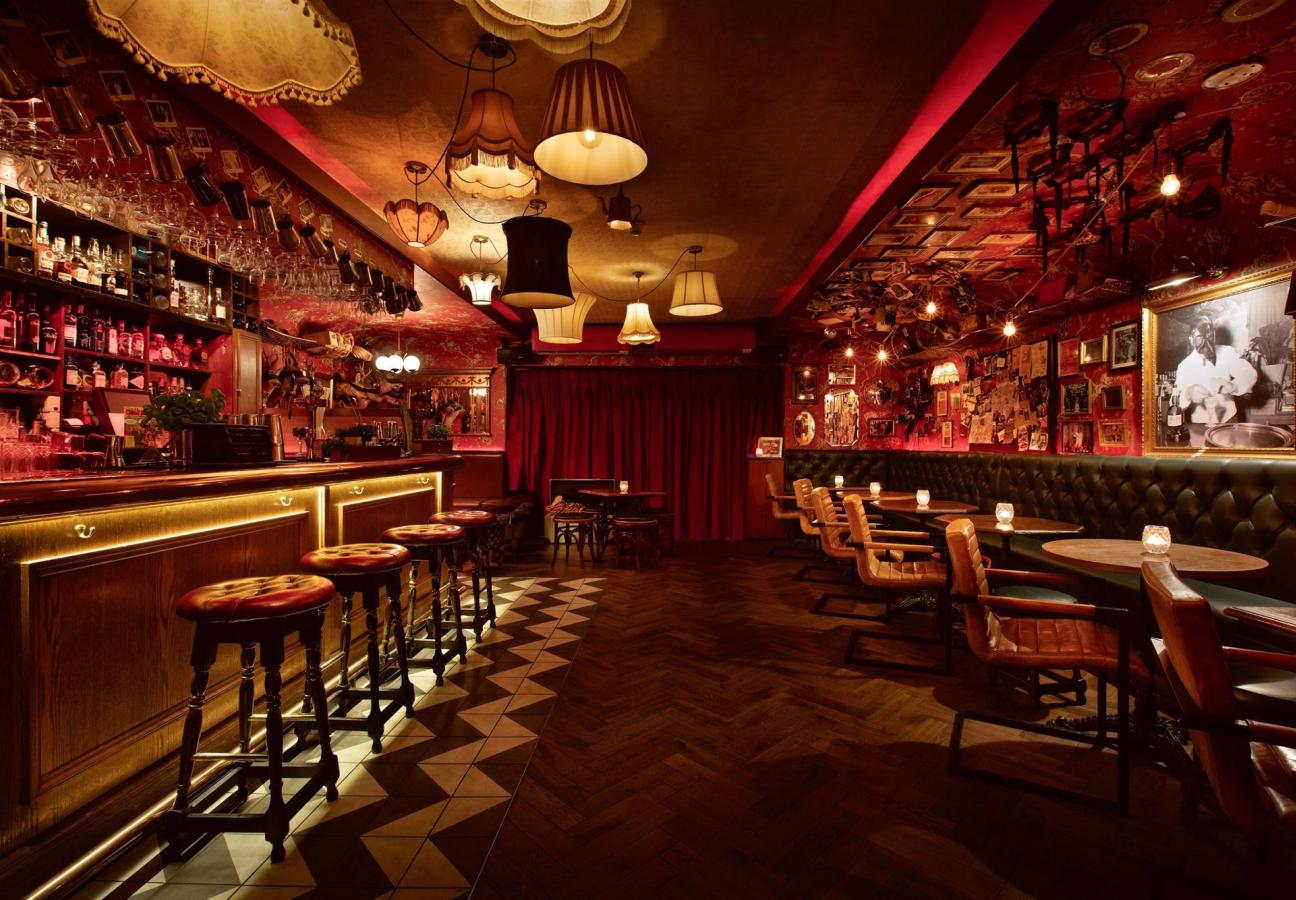
Barts
“A space that looks incredibly beautiful in a magazine isn’t always the best place to have a dinner party with loved ones,” the women explain of the concept. “We have tried to create a venue that feels like the dinner parties and house parties that we love so much.”
Of course, it would be easy to write these venues off as gimmicky and destined for short-lived success. While this will undoubtedly be true of some, with Inception’s Barts now entering its tenth year in the same West London location, clearly there is a key to making these concepts stick. “You have to stay true to the conceptual theme throughout every part of the venue, so that the experience is immersive from the moment guests walk in the door to the moment they leave,” says Gilkes. “We also focus on offering great hospitality, not just great service. Hospitality is all about how you make people feel, it’s not just providing a transactional service.”
So can experiential socialising maintain its momentum? Gilkes points to growing revenue from high-spending corporate events as a promising sign and, certainly, Inception Group’s investment in the industry shows no signs of slowing. And, for any budding entrepreneurs looking to open their own venue, Gilkes offers these words of wisdom: “The best piece of advice I can give is to carve out your own niche and focus on the small, idiosyncratic details. This is what will set you apart from competitors.”
Looking for more going out inspiration? These are the best vegan restaurants in London…

Become a Gentleman’s Journal Member?
Like the Gentleman’s Journal? Why not join the Clubhouse, a special kind of private club where members receive offers and experiences from hand-picked, premium brands. You will also receive invites to exclusive events, the quarterly print magazine delivered directly to your door and your own membership card.
